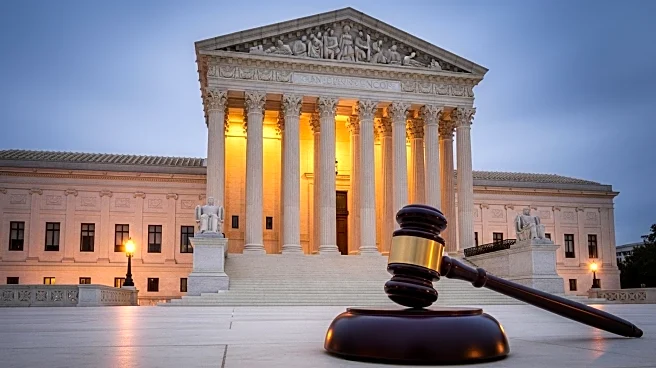What's Happening?
President Trump has appealed to the Supreme Court to overturn lower court rulings that reinstated FTC Commissioner Rebecca Slaughter after he dismissed her. Trump argues that his removal of Slaughter was lawful, citing recent Supreme Court decisions affirming presidential authority to remove agency heads. Slaughter, along with Alvaro Bedoya, challenged their dismissals, but Bedoya later resigned. A federal judge ruled Trump's action illegal, and the U.S. Circuit Court of Appeals upheld this decision, stating FTC commissioners can only be removed for cause. Slaughter has returned to her position, expressing her commitment to serving her term until 2029.
Why It's Important?
The case underscores the ongoing debate over the limits of presidential power in managing independent agencies. A Supreme Court ruling in favor of Trump could set a precedent for increased executive control over regulatory bodies, potentially affecting their independence and the implementation of policies. This could have wide-ranging implications for industries regulated by the FTC, as changes in leadership might alter enforcement priorities and regulatory approaches. The case also highlights the tension between executive authority and judicial oversight, which could influence future legal interpretations of agency governance.
What's Next?
The Supreme Court's decision will be crucial in determining the future of executive control over independent agencies. If the court rules in favor of Trump, it may lead to immediate changes in agency leadership and potentially alter the regulatory landscape. The decision could also prompt legislative efforts to clarify the scope of presidential powers regarding agency dismissals. Stakeholders, including political leaders and industry groups, will closely monitor the outcome, as it could impact regulatory practices and political strategies.











